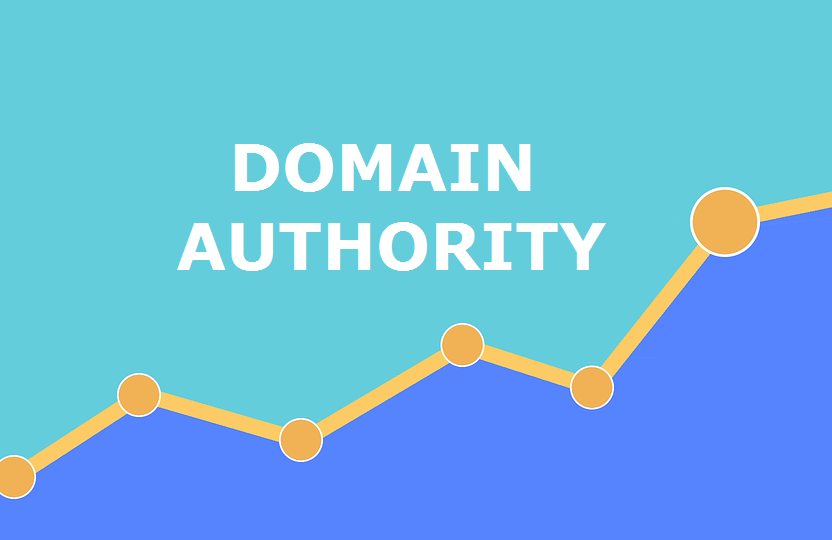

It can be difficult to understand domain authority and how it affects your business. Fortunately, this guide provides a step-by-step analysis of domain authority. It covers topics such as identifying, improving, measuring, and tracking domain authority, in addition to the benefits of having a high domain authority.
This guide will explain the factors that influence domain authority and provide strategies to maintain it.
With this information, you can make informed decisions to improve your website's domain authority and maximize the success of your business.
Quantitatively speaking, Domain Authority is a metric used to measure the strength of a website's online presence. It is a score ranging from 0-100 that takes into account various factors including link quantity, quality, and diversity of the website.
Domain Authority is based on a machine learning algorithm, and is developed by Moz, a leader in search engine optimization (SEO). It is an important metric for businesses, as a higher Domain Authority can result in higher rankings on search engine results pages (SERPs). Additionally,
Domain Authority can help businesses benchmark their website against others in their industry. Ultimately, Domain Authority can be used to evaluate the likelihood of a website to rank well in SERPs and to gain insights into their SEO strategy.
Having a high Domain Authority score can bring numerous benefits to businesses, including improved search engine rankings, increased visibility, and a competitive advantage.
Search engines such as Google and Bing use Domain Authority as a factor in their algorithms when ranking websites, so having a high score can help your website to appear higher in search engine results. This can result in more organic traffic to your website, as well as a larger online presence.
Additionally, a high Domain Authority score can also give you a competitive edge over your competitors. This can help to ensure that your business is seen as the most authoritative source of information in your field, leading to more customers and better overall brand recognition.

Building on the benefits of a high Domain Authority score, it is important to understand how to identify Domain Authority. To do so, one must first understand the basics of what Domain Authority is. Domain Authority is a search engine ranking score developed by Moz that predicts how well a website will rank on search engine result pages.
Domain Authority is measured on a scale from one to one hundred, with higher scores representing a greater ability to rank. The Domain Authority score is calculated based on the quality and number of links from other websites to a given website.
The higher the quality of the links, the higher the Domain Authority score. Additionally, Domain Authority is influenced by several other factors such as the quality of the website's content, its age, its loading speed, and other metrics.
Once identified, it is important to understand the various factors that influence Domain Authority. These include the age of the domain, the quality and quantity of backlinks pointing to the domain, the website's overall link profile, the website's content quality, the website's usability, the website's technical performance, the website's social media presence, and the website's reputation.
All these aspects are considered when determining a website's domain authority. Additionally, the domain should have a strong presence on authoritative websites such as Google, Bing, and Yahoo. This will help increase the domain's visibility and thus its overall Domain Authority.
Finally, the domain should have a good number of indexed pages and high-quality content. All of these factors will contribute to a domain's Domain Authority and can help improve its ranking.

By taking certain steps, it is possible to significantly improve a domain's Domain Authority. Key elements to consider include the quality of content, link building, and technical optimization. Quality content should be comprehensive, relevant, and engaging, and should be regularly updated.
Link building involves ensuring that backlinks from other websites are relevant and come from reputable sources. Technical optimization may involve ensuring that the website is easy to navigate for both search engine bots and users, and that all pages are accessible.
Making these changes can help to boost a domain's Domain Authority. However, success is not always guaranteed, and it is important to track progress and make adjustments if necessary.
We can track a domain's Domain Authority by regularly monitoring the metrics that influence it. This includes tracking the domain's rank, the number of inbound links, the amount of organic traffic, and the number of referring domains. It is also important to note that the quality of the content is a major factor in determining the Domain Authority.
Quality content will attract more inbound links, increase organic search traffic, and ultimately result in a higher Domain Authority score. To keep track of a domain's Domain Authority, it is important to benchmark the domain's current score and then track the progress over time.
This will help to identify any potential opportunities or issues that may affect the domain's ranking. With the right tools and techniques, it is possible to effectively track a domain's Domain Authority and make informed decisions to improve the domain's ranking.

Yes, there is a difference between domain authority and search engine rankings. Domain authority is a score given by a third-party that measures the strength of a website's domain. It is based on different factors such as the website's backlinks, social signals, and its age. Whereas, search engine rankings are based on the algorithms of the search engine and determine the order in which websites are listed in the search engine results pages. Factors such as the relevance of the content, the quality of the links, and the number of clicks can contribute to search engine rankings.
The average domain authority score for a website is typically between 1 and 100. This score is based on a variety of factors, such as the age of the website, the number of backlinks, the quality of the content, and the website's overall performance. A higher domain authority score indicates that the website is more likely to rank higher in search engine results. It is important to note, however, that domain authority is not an exact science and can vary greatly across websites. As such, it is recommended that website owners monitor their domain authority regularly in order to track their website's performance.
Increasing backlinks can increase the visibility of a website, but there are risks associated with it. Backlinks from low quality websites can harm a website's reputation, and the website may be penalized by search engines. It is important to ensure that all backlinks come from reputable websites, as this will help protect the website from being penalized by search engines. Additionally, a sudden increase in backlinks can indicate to search engines that the website is engaging in manipulative practices, which can result in a decrease in rankings and traffic.